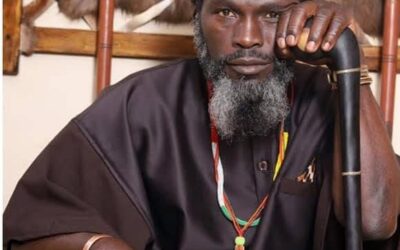By Tasha Chongo
In a dramatic escalation of tensions, Canadian mining giant Barrick Gold has suspended its operations in Mali after the government seized gold stocks worth approximately $245 million. The seizure, carried out in early January 2025, came as a result of the Malian government accusing Barrick of tax violations and failure to meet local regulatory requirements on gold exports. This move was part of the government’s broader effort to enforce compliance with mining laws, and it has had significant repercussions not only for Barrick but also for the Malian economy and broader African resource governance.
The Malian government’s decision to seize Barrick’s gold stocks was based on accusations that Barrick had violated the country’s tax and regulatory frameworks. According to the Malian authorities, Barrick had underreported the quantity of gold it was extracting and had failed to comply with Mali’s regulations on the export of precious metals. Mali, like many African nations, has long faced challenges in ensuring that foreign mining companies pay their fair share of taxes and royalties, which are essential for the country’s development.
The seizure of the $245 million in gold was framed by the Malian government as an effort to enforce these regulations and ensure that foreign companies are held accountable for their operations within the country.
The junta, a military-led government that took power in Mali following a 2021 coup, has emphasized that the country’s natural resources must benefit the Malian people. The junta replaced the democratically elected government after a period of political instability and has since pursued a more nationalistic agenda, seeking to assert greater control over the country’s resources. This stance reflects a growing sentiment across Africa that national resources should be used to foster local economic growth and development, rather than solely enriching multinational corporations.
The move has sparked a sharp response from Barrick Gold, which has insisted that it has always operated within the bounds of local laws and that the seizure was both unjustified and unexpected. The company has since suspended operations at its Loulo-Gounkoto mining complex, a key asset in Mali’s gold industry, and is now seeking to resolve the matter through international arbitration.
Barrick Gold is the second largest gold producing company in the world, with an annual production exceeding 4.5 million ounces of gold. Barrick operates a diverse portfolio of mines across North America, South America, Asia, and Africa, making it a dominant player in the global gold market. Its Loulo-Gounkoto complex in Mali is one of its flagship operations in Africa and contributes significantly to its gold output.
In 2023, Barrick’s revenues were approximately $12.6 billion, with gold making up the lion’s share of that income. In Africa, Barrick is a major economic player, providing jobs, infrastructure, and community development in countries like Mali, where it operates key mines. However, as resource nationalism grows in the region, Barrick, like many other multinational companies, is finding itself increasingly at odds with African governments seeking a larger share of revenues from resource extraction.
Mali, despite being the third-largest gold producer in Africa and one of the world’s top 20 producers, remains one of the poorest countries in the world. With a GDP of around $18 billion and a per capita income of just over $900, Mali faces severe economic challenges. The mining sector, which accounts for about 25% of its GDP, is the country’s main economic lifeline. However, the wealth generated from gold mining has not translated into widespread prosperity. Mali’s gold industry, which includes major mining operations like Barrick’s Loulo-Gounkoto and other mines such as Sadiola and Yatela, generates billions of dollars annually. Yet, despite being Africa’s third-largest gold producer, the country remains mired in poverty, with nearly half of its population living below the poverty line. The government has faced increasing pressure from its citizens to ensure that the wealth generated from its natural resources is more evenly distributed and contributes to national development.
This disparity highlights a broader issue facing many African countries rich in natural resources: while multinational companies extract vast wealth, local populations often see little improvement in their living standards. Mali’s government has been seeking to address this issue through resource nationalism, pushing for higher taxes on foreign companies and greater control over its mining resources. The Barrick dispute exemplifies this struggle to ensure that Mali’s resources work for its people rather than foreign interests.
Barrick have decided to pursue arbitration, and the company is invoking dispute resolution mechanisms outlined in the bilateral investment treaties (BITs) and its mining contracts with Mali, which provide for arbitration in cases of disagreements between foreign investors and host governments. This legal battle, which could take years to resolve, adds another layer of complexity to the situation. While arbitration offers a formal mechanism for resolving disputes, it also risks deepening tensions between the Malian government and Barrick Gold. International arbitration in such cases can have significant diplomatic ramifications, especially in resource-rich countries like Mali, where sovereignty over natural resources is a sensitive and politically charged issue.
The immediate impact of the dispute has been felt both by Barrick and by the Malian economy. For Barrick, suspending operations at its Loulo-Gounkoto complex has disrupted production and raised concerns over its global gold output. In 2023, the Loulo-Gounkoto complex alone produced over 600,000 ounces of gold, a significant portion of Barrick’s African output. A prolonged suspension of these operations could affect the company’s bottom line and potentially create ripple effects throughout the global gold market.
For Mali, the effects are even more pronounced. The gold sector is crucial to the country’s economic survival, contributing a substantial portion of its GDP and export revenues. The suspension of operations at one of its largest gold mines has already led to job losses and disruptions in local economies. It is estimated that over 10,000 people work directly at Barrick’s Loulo-Gounkoto complex, with many more dependent on the auxiliary industries that support the mining operation, such as logistics and construction. The halt in Barrick’s operations has led to immediate job losses, exacerbating Mali’s already high unemployment rate, which hovers above 8%. In mining-dependent areas, unemployment rates can be much higher, with entire communities relying on the stability of mining operations. The economic strain caused by the dispute is felt at every level of Malian society, from the workers at Barrick’s mine to the local businesses that rely on its operations.
The Barrick-Mali standoff is emblematic of the broader challenges facing Africa’s resource-rich countries. Despite being home to vast reserves of gold, oil, and other valuable minerals, Africa continues to struggle with poverty and underdevelopment. Many African governments are increasingly pushing back against multinational corporations that extract vast wealth from their land without delivering enough in terms of taxes, employment, and reinvestment into local communities.
The Barrick-Mali dispute highlights the need for African nations to ensure that their natural resources are harnessed for the benefit of their citizens. While resource extraction can fuel economic growth, it must be accompanied by strong regulatory frameworks, equitable taxation, and investments in local infrastructure and human capital. As resource nationalism continues to grow in Africa, foreign investors must adapt to an environment where governments are demanding a more significant share of the profits generated from their natural resources.
The dispute between Barrick Gold and the Malian government over the seizure of $245 million in gold is far from resolved, and the outcome of the arbitration process will have significant legal, economic, and diplomatic consequences. For Mali, a country rich in gold but still deeply impoverished, this case represents a critical moment in its struggle to ensure that its resources work for its people, rather than foreign companies. As the situation unfolds, it serves as a reminder that Africa’s vast natural wealth must be carefully managed to foster sustainable development and improve the lives of its citizens.
The Barrick case may set a precedent for future resource-related disputes in Africa, highlighting the delicate balance between attracting foreign investment and ensuring that the benefits of resource extraction are shared equitably with the local population. The eyes of both the mining industry and African governments will be closely watching how this high-stakes dispute plays out in the coming months and years.
Tasha Chongo: Researcher, Writer, Strategy Analyst








13 thoughts on “Canadian Mining Giant Barrick Halts Operations in Mali After Government Seizes Gold Stocks Worth $245 Million”